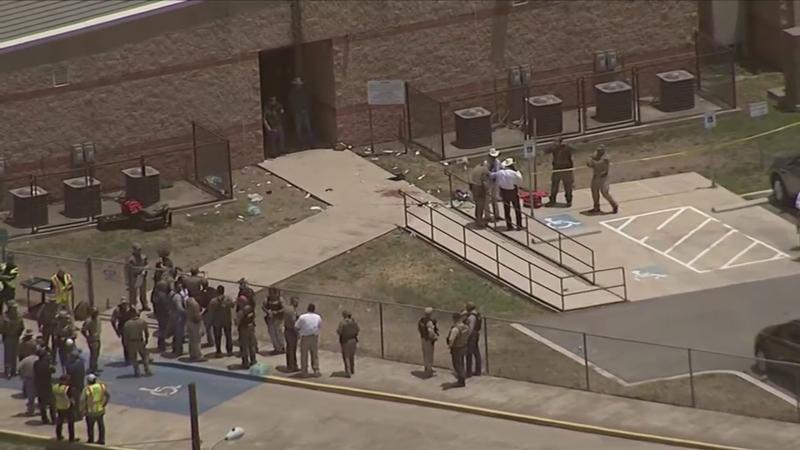In wake of Texas school shooting—what can you do if you see concerning posts on social media?
[anvplayer video=”5111370″ station=”998131″]
ROCHESTER, N.Y. (WHEC) — We may never know what motivated the 18-year-old who killed 19 children at Robb Elementary School in Uvalde, Texas, but we can learn how it was able to happen in order to prevent similar acts in the future.
News10NBC Investigative Reporter Jennifer Lewke learned what law enforcement is looking for right now and how the answers could help us all.
Monroe County Sheriff Todd Baxter has studied mass shootings for years.
"So, there is a predictability to some of these cases," Baxter said. "The targeted violence cases, you go back and study them which we do and you look at this ladder of evolution towards a grievance, pissed off at something, upset with something, towards ideation I can’t get off it I’m fixated, towards some kind of overt action so I start to study or post more online or come up with things that they’re constructing around that it’s very predictable if you see it ahead of time."
There are opportunities at each one of those stages to try to intervene.

[NBC News Channel]
"Someone is eventually going to talk about this whether they let it go on social media, they talk to a friend wait till tomorrow you’re gonna see something big happen or something like that, that’s called leakage and what we need is people trained to identify it and then report it," Baxter said.
As the Texas shooter’s social media accounts show, and family members and former friends have indicated, there was plenty of leakage that he was headed down this path.
So, what can we all look for? Even if you’re not a direct relative, teacher, or counselor, but see something you think could be leakage, don’t be afraid to say something to someone who can investigate. And if it is your child or, relative, Child and Family Psychologist Dr. Anthony Pisani had some suggestions.
"Let’s say you have a student who you’re worried might be tending toward violence or seems to be obsessed with certain things and ask them what they think about this, ask them what they think about what happened to Buffalo see what their responses are," Pisani said. "If you hear a response that seems kind of out of the ordinary that would be the time to really seek help and don’t just wait on it."
While finding the right mental health resources in the community might take some time.
"There’s often informal supports so, if you’re in a family where we don’t seem to be able to get mental health care, we aren’t involved in a spiritual community, we don’t have other community ties, what about people in your own family is there an uncle or a brother or a cousin who you trust who we can just open up the boundary inside your immediate household open it up to the person," Pisani said.